Preventive maintenance of HVAC systems at industrial plants reduces food losses by 67%
Case Summary
The Challenge
The client was tackling increased losses from perishable shrinkage due to malfunctioning HVAC systems. Though their facilities had an existing installed E2 energy management system that generated alarms, the store personnel often did not have the expertise or time to analyze the alarms and respond appropriately. They wanted a system that could help them proactively maintain their HVAC systems without having to increase their workforce. The new system had to predict a failure in advance and trigger an alarm at least two days before it for timely and economical maintenance. They partnered with SLK to co-create this solution.
The Solution
The SLK team identified the ten most critical alarms for HVAC systems and built a system to predict failures two days in advance. The system was built on the Microsoft Azure Services Platform with end-to-end solution ownership. The platform uses transmitter and sensor log data to identify constraints and influencing factors and has inbuilt algorithms to predict faults before an alarm triggers. This predictive analysis is done through Supervised Learning Multi-Class classification model. Connecting over two million devices, the system highlights 10+ critical alerts and factors on real-time intuitive dashboards.
Business Impact
67%
Reduction in food loss expenses
99%
Upkeep
35%
Reduction in operational costs
SLK’s Efforts Showed Quick Results:
The new system helped the client predict maintenance needs and keep the HVAC systems running smoothly.
- The system connected two million devices for 24/7 monitoring and triage of alarms
- Pre-empting maintenance needs helped the client optimize the maintenance schedule and reduce costs by 35%
- A well-running HVAC system reduced loss due to perishable shrinkage by 67%


